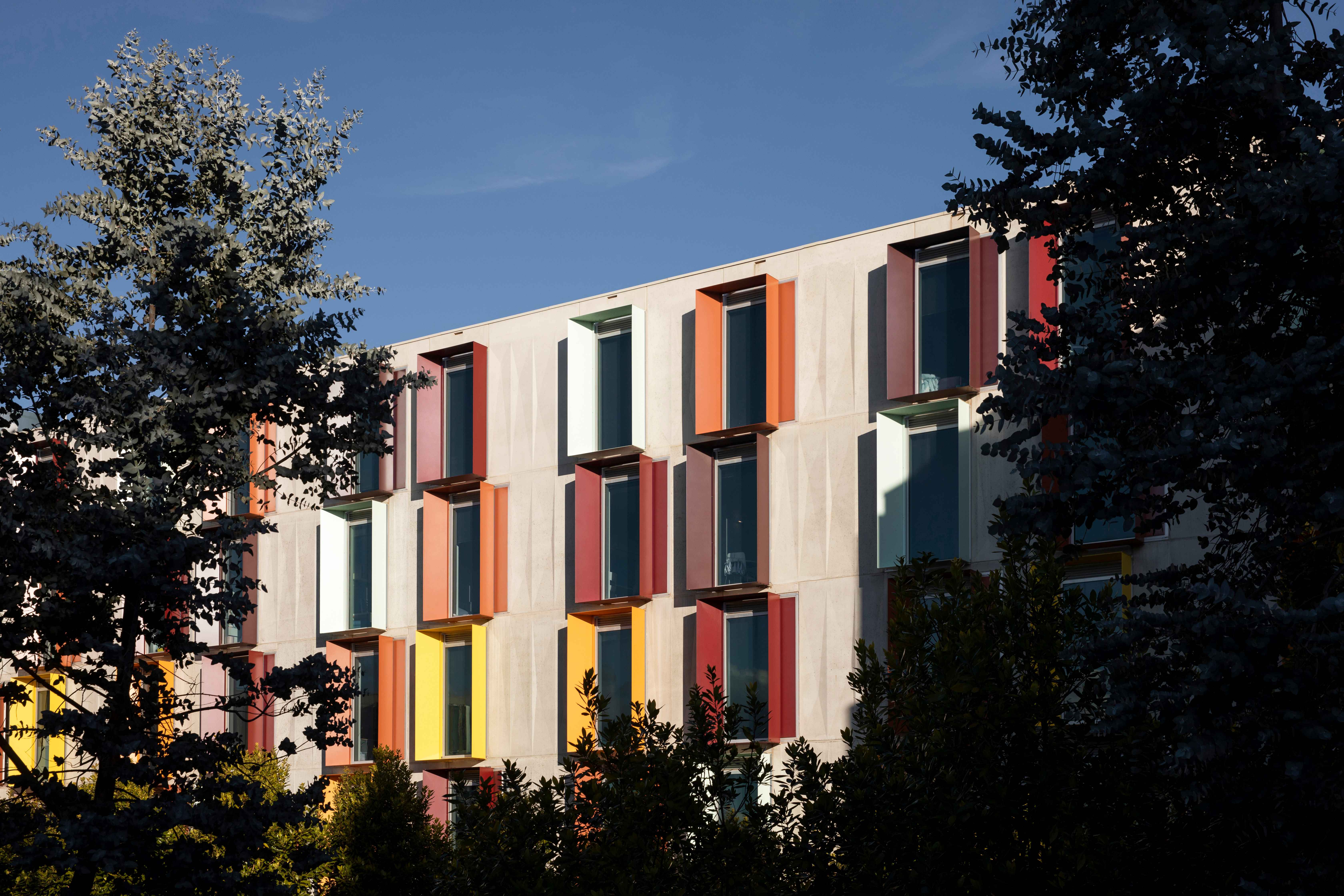Ditching the dorm life and venturing out on your own is a significant milestone in your college journey. But before you dive headfirst into endless rental listings, take a deep breath. Searching for the right student apartments requires some strategic planning. In this guide, you’ll gain more knowledge and tools to navigate the search process with confidence.
Start Early
Timing is crucial when it comes to finding the right apartment. Start your search at least two to three months before you need to move in. This gives you enough time to explore different options like BYUI housing, compare prices, and make an informed decision. To streamline your search, explore the following options:
Online Listings
Utilize apartment search engines. For better results, filter listings based on location, price range, and desired features.
College Resources
Many colleges have off-campus housing departments that provide listings and hold housing fairs.
Word of Mouth
Talk to friends, upperclassmen, and local residents for recommendations and off-the-market leads.
Early searches also help you avoid the stress of last-minute decisions and limited availability. The best apartments often get snatched up quickly, so being proactive gives you an edge over other students.

Budget Like a Boss
Finding an apartment that fits your financial needs is paramount. Here’s how to create a realistic budget:
Calculate Your Income
Factor in scholarships, part-time jobs, and any financial aid you receive. Be realistic about your income stream, considering if it’s likely to fluctuate throughout the year.
Estimate Your Expenses
Don’t just consider rent. Account for utilities (electricity, water, internet), groceries, transportation, and entertainment costs. Be honest with yourself about how much you typically spend in each category, and adjust accordingly.
The 30% Rule
A general rule of thumb suggests allocating no more than 30% of your gross income towards rent. This leaves you with enough wiggle room to cover other expenses comfortably.
Creating a realistic budget ensures that you can manage your finances effectively and find a convenient student accommodation that won’t strain your resources.
Decide on Location
Your apartment’s location plays a crucial role in your overall student experience. Here are key factors to consider:
Proximity to Campus
Living close to campus cuts down on commute times, allowing you to sleep in a bit longer or squeeze in a last-minute study session before that early morning class. Factor in walking distances, bus routes, and bike paths when evaluating locations.
Safety
Prioritize your safety. Research crime rates in different neighborhoods and choose well-lit streets with a good sense of community. Look for apartments with security features like security cameras and controlled access entry.
Amenities
Think about your lifestyle. Do you crave a vibrant nightlife scene or a quieter, more residential area? Consider proximity to grocery stores, restaurants, cafes, laundry mats, and gyms.
Selecting an apartment with these factors in mind will ensure a more convenient, safe, and enjoyable student living experience.
Consider Roommates
Living with roommates can significantly reduce your rent and utility costs. Discuss expectations, habits, and responsibilities with potential roommates to avoid conflicts later on.
Shared Expenses
Splitting rent and utilities can make living more affordable. This allows you to allocate more of your budget to other essentials or savings.
Support System
Roommates can offer social support, which can be comforting in a new environment. They can help you navigate the challenges of student life and provide companionship.
Shared Responsibilities
Tasks like cleaning and grocery shopping can be divided, reducing the workload for everyone. This division of labor ensures a cleaner, more organized living space without overwhelming any single person.
Compatibility
Choose roommates with similar lifestyles and study habits to create a harmonious living environment. This compatibility minimizes conflicts and promotes a peaceful and productive home atmosphere.
Having roommates can also provide a support system, making the transition to independent living easier. Choose those who have similar lifestyles and study habits to create a harmonious living environment.
Check Out Amenities
Make a list of must-have amenities and those that are nice to have in a student accommodation. Common amenities include laundry facilities, parking, and access to a gym or pool. Prioritize what’s most important to you.
Laundry Facilities
On-site laundry can save you time and money compared to using laundromats. It’s convenient and allows you to do your laundry at any time without leaving the building.
Parking
Secure and convenient parking options are crucial if you own a car. Having a designated spot can also provide peace of mind and protect your vehicle from damage or theft.
Gym or Pool Access
These amenities can enhance your lifestyle and save you money on memberships. A gym or pool within the complex means you can easily incorporate exercise into your daily routine.
Study Areas
Quiet, designated study areas can be invaluable for your academic success. These spaces are perfect for focusing on your studies without the distractions that can come from studying in your apartment.
High-Speed Internet
Reliable internet is essential for completing assignments and staying connected. High-speed internet ensures that you can efficiently research, stream lectures, and participate in online classes without interruptions.
Amenities can greatly enhance your living experience. However, be realistic about which amenities you’ll use regularly and which ones you can live without. This helps you avoid paying extra for features you won’t utilize.
Schedule an Apartment Tour
Scheduling apartment tours is your chance to assess the place in person. Here’s what to keep an eye on:
Overall Condition
Check for cleanliness, signs of water damage, or any maintenance issues. Look for peeling paint, malfunctioning appliances, or leaky faucets. Don’t hesitate to ask about the history of any repairs made in the apartment.
Natural Light
Ample natural light is crucial for your mental and physical well-being. Large windows that let in sunshine can boost your mood and energy levels. Consider the layout of the apartment and how natural light flows throughout the space.
Noise Levels
Pay attention to ambient noise from traffic, construction, or noisy neighbors. Take a walk around the neighborhood at different times of the day to get a feel for the noise level. If you have specific noise sensitivities, mention them to the landlord or property manager during the tour.
Safety Features
Ask about security measures like deadbolts, fire alarms, and emergency exits. Inquire about the building’s security protocols, such as key fob entry or security cameras. Knowing you’re in a safe and secure environment will give you peace of mind.
Don’t underestimate the importance of the apartment tour. By taking the time to thoroughly assess the space, you can avoid potential headaches down the road. Remember, you’ll be spending a significant amount of time in your new apartment, so make sure it feels comfortable, safe, and conducive to a productive and enjoyable student life.

Don’t Forget the Fine Print
Once you’ve found your dream apartment, it’s time to delve into the lease agreement. This legally binding document outlines your rights and responsibilities as a tenant. Here’s what you need to understand:
Rent and Fees
Double-check the monthly rent amount and any additional fees for utilities, parking, or pet deposits. Don’t be afraid to ask for clarification on any unfamiliar charges to know your options to pay for your preferred off-campus housing.
Term of Lease
Note the duration of the lease agreement and any early termination penalties. Leases are typically for 6 or 12 months, so make sure you’re comfortable with the commitment before signing. Early termination fees can be hefty, so plan accordingly.
Subletting Policy
If you’re unsure about sharing the space with roommates, inquire about subletting rules. Subletting allows you to find someone to take over your lease if you need to move out before the term ends. Understanding the policy upfront can save you a headache later.
Maintenance Responsibilities
Understand who’s responsible for repairs and maintenance, and maintain a clear communication channel with your landlord. The lease will specify which repairs are your responsibility (like replacing light bulbs) and which fall on the landlord including fixing a leaky faucet. Keep a record of any maintenance requests you make to the landlord.
Reading the lease agreement carefully protects your interests. Don’t hesitate to ask questions if anything is unclear. A little time spent understanding the terms upfront can save you frustration and financial trouble down the road.
Plan Your Move
Once you’ve signed the lease, start planning your move. Create a checklist of tasks, such as packing, arranging transportation, and setting up utilities.
Packing
Gather packing supplies like boxes, tape, and bubble wrap. Start packing non-essential items first, and label all boxes clearly.
Transportation
Arrange for a moving truck or enlist the help of friends with vehicles. Plan the moving day and ensure you have enough help for heavy lifting.
Utilities
Contact utility companies to set up electricity, water, internet, and other services before you move in. This ensures you have all the essentials from day one.
A well-organized move reduces stress and ensures that you don’t forget important details. Start packing early and label your boxes to make unpacking easier. Moving into your new apartment should be an exciting and smooth process.
Conclusion
Finding the perfect student apartments involves careful planning, research, and consideration of your personal needs. By following these steps, you can secure a comfortable and suitable living space that enhances your college experience. Happy apartment hunting!

Leave A Comment